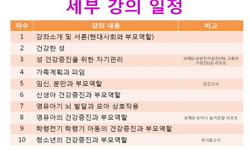The purpose of this study was to examine the effect of lack of tolerance for uncertainty in people with physical disabilities on health promotion. Data were collected from 250 people with physical disabilities living in five regions: Seoul, Gyeonggi, ...
http://chineseinput.net/에서 pinyin(병음)방식으로 중국어를 변환할 수 있습니다.
변환된 중국어를 복사하여 사용하시면 됩니다.
- 中文 을 입력하시려면 zhongwen을 입력하시고 space를누르시면됩니다.
- 北京 을 입력하시려면 beijing을 입력하시고 space를 누르시면 됩니다.

지체장애인의 불확실성에 대한 인내력 부족이 건강증진행위에 미치는 영향 = Effect of Lack of Endurance for Uncertainty on Health Promotion of People with Physical Disabilities
한글로보기https://www.riss.kr/link?id=A108058624
- 저자
- 발행기관
- 학술지명
- 권호사항
-
발행연도
2022
-
작성언어
Korean
- 주제어
-
등재정보
KCI등재
-
자료형태
학술저널
-
수록면
283-292(10쪽)
-
KCI 피인용횟수
0
- DOI식별코드
- 제공처
-
0
상세조회 -
0
다운로드
부가정보
다국어 초록 (Multilingual Abstract)
The purpose of this study was to examine the effect of lack of tolerance for uncertainty in people with physical disabilities on health promotion. Data were collected from 250 people with physical disabilities living in five regions: Seoul, Gyeonggi, Chungcheong, Jeolla, and Gyeongsang. Of these, the final 170 copies were used for the final analysis, excluding 80 copies with inconsistent responses or omissions. The survey tool was used by modifying and supplementing the questionnaire about lack of tolerance for uncertainty and health promotion used in previous studies. For the collected data, frequency analysis, exploratory factor analysis, reliability analysis, and structural equation model analysis were used using SPSS and AMOS analysis programs. The derived research results are as follows. First, mental pain and work-life dissatisfaction due to uncertainty, which are sub-factors of the disabled's lack of tolerance for uncertainty, did not affect all factors of health care, interpersonal relationships, and physical activity, which are sub-factors of health promotion behavior. . Second, it was found that the loss of confidence and difficulty in work progress due to uncertainty, which are sub-factors of the disabled's lack of tolerance for uncertainty, have a positive (+) effect on health management and physical activity, which are sub-factors of health promotion behavior. These research results are research data that can confirm the will to health of the disabled, and indicate the justification for the need to provide various programs for the health promotion of the disabled.
동일학술지(권/호) 다른 논문
-
청소년 여자 배구선수의 균형 훈련과 플라이오메트릭 훈련이 점프 후 착지패턴과 점프수행능력에 미치는 효과
- 한국체육과학회
- 김채린
- 2022
- KCI등재
-
- 한국체육과학회
- 윤각현
- 2022
- KCI등재
-
엘리트 청소년 야구 선수들의 포지션별 기초체력, 하지 근기능 및 무산소성 파워 비교 분석
- 한국체육과학회
- 여효성
- 2022
- KCI등재
-
- 한국체육과학회
- 이염하
- 2022
- KCI등재
분석정보
인용정보 인용지수 설명보기
학술지 이력
| 연월일 | 이력구분 | 이력상세 | 등재구분 |
|---|---|---|---|
| 2026 | 평가예정 | 재인증평가 신청대상 (재인증) | |
| 2020-01-01 | 평가 | 등재학술지 유지 (재인증) |  |
| 2017-01-01 | 평가 | 등재학술지 유지 (계속평가) |  |
| 2013-01-01 | 평가 | 등재학술지 유지 (등재유지) |  |
| 2010-01-01 | 평가 | 등재학술지 선정 (등재후보2차) |  |
| 2009-01-01 | 평가 | 등재후보 1차 PASS (등재후보1차) |  |
| 2008-01-01 | 평가 | 신청제한 (등재후보1차) |  |
| 2007-01-01 | 평가 | 등재후보 1차 FAIL (등재후보1차) |  |
| 2006-01-01 | 평가 | 등재후보학술지 유지 (등재후보2차) |  |
| 2005-01-01 | 평가 | 등재후보 1차 PASS (등재후보1차) |  |
| 2004-01-01 | 평가 | 등재후보 1차 FAIL (등재후보1차) |  |
| 2003-01-01 | 평가 | 등재후보학술지 선정 (신규평가) |  |
학술지 인용정보
| 기준연도 | WOS-KCI 통합IF(2년) | KCIF(2년) | KCIF(3년) |
|---|---|---|---|
| 2016 | 0.66 | 0.66 | 0.67 |
| KCIF(4년) | KCIF(5년) | 중심성지수(3년) | 즉시성지수 |
| 0.66 | 0.66 | 0.593 | 0.18 |




 DBpia
DBpia






